The following is an extract from "Fire in the Morning," authored by IrishCentral founder Niall O'Dowd, about the events of September 11, 2001, and the many Irish and Irish Americans who became heroes, survivors, and victims that dreadful day.
United Flight 175, a Boeing 767 non-stop from Boston’s Logan Airport to Los Angeles with seven flight attendants and 56 passengers on board, rolled back from Gate 19 shortly after 7:45 am on September 11. The captain was Victor J. Saracini, 51, a native of Pennsylvania. The first officer was Glen Horrocks, 38, also of Pennsylvania.
Ruth Clifford McCourt, 45, and her four-year-old daughter, Juliana, were among the passengers. A native of Ireland, Ruth was an extremely successful businesswoman who had created a Boston beauty spa that drew customers from all over Europe and the U.S. She was also strikingly beautiful. Tall, blond, and elegant, Ruth was perfectly dressed for every occasion. Juliana was a duplicate of her mother, with angelic good looks and a mischievous smile. At a wedding just the week before, Juliana had played with the other children. Afterward, one of the mothers told Ruth that her daughter had said she’d been “playing with an angel,” meaning Juliana.
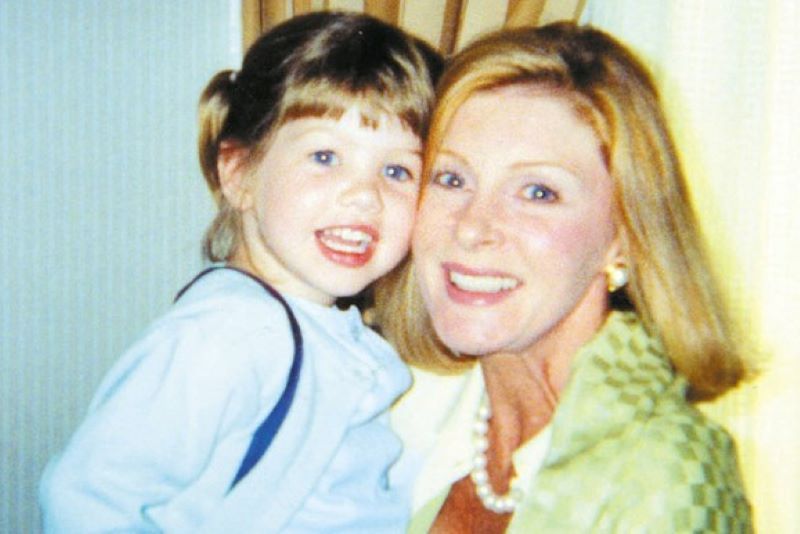
Ruth Clifford McCourt with her daughter Juliana.
Despite her business success, after the birth of her daughter in 1997, Ruth became a full-time mother, devoted to the blond little girl who was the center of her and her husband David’s life. She had recently returned from trips to Portugal with Juliana and was excited because the little girl had learned to ride her pony on her own.
Originally from Cork, where her father, a paper merchant, was a leading figure in business, Ruth, the only girl of five children, left for America with her mother at age 16, when her parents separated.
After college, she began working for Barbizon, an institute of learning about cosmetics that has outlets all over the United States. Her territory was in the South in the Birmingham, Alabama area.
She became a skincare specialist, training in one of London’s top schools. When she returned to the U.S. in 1986, she opened her own spa, Clifford Classique, in the Newtown area, a suburb of Boston. It was an immediate success.
In 1995, she met David McCourt, twelve years her senior, from a wealthy Connecticut family that traced its roots back to Waterford. McCourt had inherited his father’s gas distribution business and he and his brother had expanded it greatly. They met through tennis-playing friends. It was love at first sight and within six months they were making plans to get hitched.
The wedding at the Vatican was a bittersweet affair, however. Five days before the ceremony Valentine, Ruth’s beloved father, had passed away. He had just finished writing his speech for her wedding. The family decided to go ahead with the wedding anyway.
In typical fashion, Ruth had wrangled an audience with the Pope for her and her new husband. She had promised an influential priest in her district that she would set up a meeting with Kate Hepburn, a family friend if he returned the favor with the Pope. “Done,” he’d said.
Now she was flying to a Deepak Chopra seminar on the West Coast. She was a devotee of the New Age guru as was Paige Hackel, 46, her close friend who was traveling on American Airlines Flight 11, leaving at about the same time to go to Los Angeles. They had not traveled together because they had different frequent flyer programs.
The friends had spent the night before at Paige’s house, planning their trip, which would end with a visit to Disneyworld in Anaheim, California for Juliana.
In the car on the way to the airport, Juliana’s orange juice had spilled out of its container in Ruth’s handbag. The driver remembers that Ruth took it all in stride, her well-known ability to remain calm during crises great and small showing itself. The driver remembers an excited trio, laughing and chatting as they prepared for their long trip.
Also on board the United flight that Ruth and Juliana were on was Marwan Al-Shehi, a citizen of the United Arab Emirates who had recently attended flight school in Florida, and five other men: Fayez Ahmed Hassan, Ali Banihammad, Mohand Alsehri, Ahmed Alghamadi, and Mamza Alghamadi.
All the men were dressed in khakis and tan tennis shirts, not unusual for a flight that would terminate in sunny California. Surprisingly, none of the men had any carry-on baggage.
American Airlines Flight 11, with Paige Hackel on board, had departed at 8:04, ten minutes before the United flight. On board were Mohammad Atta, an Egyptian with flying experience, and four other Middle Eastern men who all sat in first class.
The two planes began climbing to their scheduled altitude of 36,000 feet. At 8:37 a.m., the first sign that something was amiss came when the United flight received an unusual request from the tower asking if they could see the American flight.
“Affirmative, we have him, he looks about twenty-nine, twenty-eight thousand feet,” responded Captain Saracini. At 8:41, the United pilot, obviously now concerned about the American Airlines plane reported, “We heard a suspicious transmission on our departure from BOS,” using the airport’s three-letter code. “Sounds like someone keyed the mike and said ‘Everyone remain in your seats.’”

Love Irish history? Share your favorite stories with other history buffs in the IrishCentral History Facebook group.
Air traffic control began to scramble. Over Albany, New York, the American Airlines flight took a sharp left and headed due south towards New York City, well off its flight path. Then came a chilling transmission from flight attendant Amy Sweeney. She told a flight services manager at American that five hijackers were on board. She described them as being of Middle Eastern descent and stated they had stabbed two of the flight attendants. “A hijacker cut the throat of a business-class passenger,” she said “and he appears to be dead. They have just gained access to the cockpit.”
At 8:43, United Flight 175 also veered from its flight path over northern New Jersey. It continued south for a brief period before making a U-turn towards New York City. The nightmare had begun.
Soon after he awoke, Ruth McCourt’s brother Ron Clifford, 47, heard the sound of his phone ringing in his Glen Ridge, New Jersey home. It was his breakfast appointment, and he asked him if they could switch from the Marriott on Times Square to the one at the World Trade Center. He looked at his watch; it was 6:30 and the World Trade Center was actually closer than the midtown destination. Quickly he agreed. This was a very important appointment. Ron’s software company, Tradewind Net Access, specializing in E-Learning, was about to close a major deal over breakfast, he hoped. As his sister Ruth had suggested, he dressed in his dark blue suit, white shirt, and yellow silk tie. Ruth had told him to be sure to wear a matching hanky in the breast pocket. “You have to stand out,” she’d said.
It was a beautiful sunny day and it was his daughter Monica’s birthday. Coincidentally, she would be 11 on September 11th. He planned to come home early to help her celebrate.
He gazed out at the azure sky, a perfect autumn day, and he decided to take the train across from New Jersey, then the ferry from Hoboken to Lower Manhattan, rather than drive. That would give him time to walk around the World Trade Center. As an architect, he was endlessly fascinated with the building’s extraordinary structure, and when out-of-towners visited, his guided tour of Manhattan usually ended at the Twin Towers.
In fact, the week before, when preparing to sail off Manhattan, a minor problem with the shaft of his boat had put him in contact through a friend with an engineer named Bob Devillas. Bob fixed the shaft and they chatted about his previous job. He had just retired as the Chief Engineer at the World Trade Center in charge of ventilation and heating. He had been present when the 1993 bombing carried out by Arab militants had taken place. He, in fact, was the first person into the basement after that bomb which killed six people.
Ron called a neighbor close to the station to find out the train timetable. The New Jersey PATH train would leave at 7:30 sharp. He would make it easily. When he reached the Hoboken ferry off the train, he marveled again at the beauty of the day. During the short hop across the Hudson to the pier, he found himself praying that his meeting would go well. He and his Indonesian partner were on the verge of greatly expanding their software company, so today’s breakfast meeting would be a vital step forward.
Because he used to work in the vicinity of the World Trade Center, Ron knew the area well. He got off the ferry and walked a few blocks to the hotel. It had formerly been known as the Vista and he knew there had been major renovations since the change in ownership – the architect in him wanted to see the connecting lobby to the World Trade Center. It was 8:30 and he had 30 minutes to fill before the breakfast.
Inside, he walked down the marble hallway of the Marriott and into the World Trade Center lobby, a place of soaring ceilings, dramatic light, and incredible hustle and buzz. He always found it stark and very dramatic. He lingered, then was heading back through the connecting revolving door when a massive explosion rocked the building. It was 8:46 a.m.
American Flight 11, traveling at 494 miles per hour with hijacker Mohammed Atta at the controls, had hit the North Tower between the 94th and 99th floor, imploding on impact, its 24,000 gallons of jet fuel creating a mighty fireball. Onboard was Paige Hackel, his sister’s best friend, and the woman he spent every New Year’s with.
“I remember that I smelt paraffin right away. I didn’t equate it with aviation fuel and I immediately thought that it must have been a tank rupture in the basement,” he says. Suddenly, the building began to shake and secondary explosions could be heard. All around him, people began screaming and running. He made it towards the connecting doors with the Marriott Hotel.
Then he saw a woman walking out of the haze towards him. Her hands and her body were completely burnt. She was walking like Frankenstein with her arms directly in front of her because her arms were so swollen. Her face was unrecognizable, her head was bare of any hair. A hair slide was burnt into her skin. He knew immediately she was in desperate shape. She had been waiting for a bus outside the building and had run inside when a fireball had engulfed her.
“The man who was next to me is dead,” she told Ron.
“I told her to sit down and I ran into the bathroom and looked around and found a plastic bag that I filled with water,” Clifford remembers. It never occurred to him to just leave the woman. “That’s not my way, not the way of my religion,” the staunch Catholic remembers. “I doused her with the bag of water, then I screamed repeatedly for help,” he remembers. “I stood up, kept my eyes on her, and shouted for EMS support.”
Suddenly the woman spoke. “Jesus, Sacred Heart of Mary, help me,” she said. He knelt down next to her, knowing now she was a Catholic, and they said a Hail Mary and then the Lord’s Prayer.
Then a woman arrived with an oxygen canister and they immediately had her breathe into it. She told him her name was Jennieann and asked him not to call her mother, who she said was too frail and ill to be told about her daughter’s condition. She gave him her boss’s name at Paine Webber brokerage house and told him she was allergic to latex and was an asthmatic. He scribbled all the details down on a notepad he found in her bag.
At this point, he could hear the building shaking and groaning. Because of his architect’s training, he was listening for the harmonic convergence, the vibrations coming from the building indicating how it was handling the stress and strain. He did not like what he was hearing. Then came the second massive explosion.
Overhead, United Flight 175 traveling at 586 miles per hour carrying his sister Ruth and his beloved niece Juliana slammed into the South Tower between the 78th and 84th floor with incredible force. He had no idea they were on board and actually thought they had left for California a day or so before.
“I knew we had to get out of the building,” he says, and he got Jennieann to her feet and asked her if she could make it. “She told me yes so we commenced moving. I was screaming at the top of my lungs for people to get out of the way. They were so horrified when they saw her that they parted like the Red Sea. Somebody shouted, ‘It’s a plane.’ Someone else ‘It’s two planes,’ and then it finally struck me what had happened.”
Because all her clothes had been burnt off, a waiter gave Clifford a large tablecloth to cover the stricken woman. Eventually, they made it outside.
“It was pure carnage,” he says. Every couple of moments there was a loud thud, which he realized were people hitting the ground after jumping from the top floors. Cars, trucks, and buses were ablaze or burnt out altogether. There were bodies on the street everywhere.
“The noise, that’s what I remember most,” he says now, “the awful noise and panic.” Huge girders crashed down from the buildings onto the Plaza and the bodies kept falling.
“There is stuff I saw that I will have to deal with for the rest of my life,” he says.
Suddenly, out of the smoke and gloom. a fireman appeared “Run for your life,” he screamed at them. “Run, run, run.”
Then Ron saw the most extraordinary sight of all: dozens of firemen rushing towards the death trap, going into the building he had just left in order to save people. “I’ve never seen such bravery,” he says now.
He crossed over the West Side Highway to the line of ambulances that were drawn up. Tenderly, he helped Jennieann to the first on the line. “You have to make it now, after all we have been through,” he told her. After Jennieann was taken away, Ron turned and saw young men on the upper floors literally skydiving off the building. He saw one couple holding hands as they fell. Everywhere a thick cover of ash and soot was descending on the living and the dead. It was sheer hell.
He made his way to a public phone in a nearby building, miraculously still working, and called his wife Bridget. She had been watching CNN when the story hit. Sick with worry, she had been trying desperately to reach him on his cell phone but all service was out. “I’m okay,” he told her. “I’ve just gone through hell but I’m okay.” His next call was to his sister Ruth, who he thought might pick up her cell phone. There was no answer. He hardly gave it a second thought.
As he spoke, bodies were still passing in front of the window of the building he was in. He said to a man near to him, “These buildings are coming down.” The man said, no, that he was an engineer and that the Trade Towers could withstand even airplanes crashing into them. He remembers thinking the guy must know what he is talking about.
He remembered also that New Jersey Transit had recently announced that in the event of an emergency, trains would line up at the arrival point on the Jersey shore of the Manhattan ferries to bring people to safety. He walked to the nearby South Ferry landing and waited to board. All that was on his mind now was that he had to get home to his family.
Hundreds were waiting along with him. Women and men were on their knees praying. The sound of police and fire sirens filled the air. He was afraid they would lock down the area before he could get out.
Luckily, he managed to get on board a ferry and remembers standing with a woman from Northern Ireland when they saw the South Tower collapse in a massive plume of smoke. “This can’t be happening,” he told himself over and over.
He jumped on the first train and a man with a Blackberry pager told everyone that Washington too was under attack. He thought the world might very well end that day.
The train dropped him one station from his house. Finally, he made it home, bedraggled and exhausted, the burnt skin of Jennieann on his shirt and suit, his tie covered in aviation fuel. He desperately wanted to take a shower to clean up.
Just as he stepped into the bathroom, Ruth’s husband, David, called with undisguised concern in his voice. He thought, but he wasn’t sure, that Ruth might have been on one of the flights. Ron remembers a sinking feeling and thinking, “Oh shit, this just couldn’t be.”
For the next several hours, he worked the Internet, calling up the United and American Airlines websites. He found out from Paige Hackel’s husband Alan that he had been with them the night before and that a driver had picked them up that morning to drop them at their separate terminals. “I had dinner with two of the most beautiful and vivacious women in the world last night and now they’re gone,” he told Ron tearfully.
Ron still had not given up hope, but as the hours passed and he began to fully put the pieces together he knew it didn’t look good. “We’re in trouble,” he told Ruth’s husband. “Jesus Christ, this can’t be happening.”
Finally, confirmation of the passenger list came from the airlines. Ruth, Juliana, and Paige were all gone.
“I was numb, totally numb,” said Ron when it was finally confirmed. “My brothers in Cork had been so relieved that I escaped, none of us originally thought that Ruth was involved. Then it all came out.”
He often thinks of those last moments of his sister and niece, wondering what they went through. “I think Ruth probably exemplified calmness – she would have talked to Juliana, read to her, they might even have sung a song together. She was no panicker; she was trying to control whatever she could, telling her daughter everything was fine. It wouldn’t surprise me if she had a calming impact on her fellow passengers around her too."
After September 11, Ron says he functioned on false energy for weeks, communicating news to his family (Ruth’s body was not found until January, Juliana’s has not been found) and a memorial service in Connecticut at the beach house that Juliana, Ruth, and David had called home. Over 1200 showed up at the church. Seven hundred people attended the reception and the last song was “Galway Bay,” one of Ruth’s favorites.
A few days after the memorial, Ron Clifford stood at the bedside of Jeannieann Maffeo, the woman he had helped on the morning of September 11. Maffeo, a 38-year-old computer analyst with Paine Webber, lived in Brooklyn with her sister Andrea and her elderly parents from Italy.
Now she was in the burns unit at Cornell Hospital on Manhattan’s East Side, one of the best in the world, but the nature of her horrific injuries meant it was long odds that Jeannieann, now unconscious, could survive.
With him, Ron Clifford brought his yellow silk tie, the one his sister Juliana had recommended he wear for his important breakfast. It was now stained with aviation fuel and he placed it gently beside Jennieann’s bed as a token of the experience they had had together. Then he lowered his head and prayed for the young woman who had so randomly come into his life under tragic circumstances on the morning of September 11. He pleaded with her to make it, to defy the odds, to make some good happen out of a horrible experience.
Her parents and sister, he found out, had been desperately looking for her after the Trade Center buildings came down, and her boss had eventually called them after he got the information Ron had written down. Jennieann had asked Ron not to call her mother because she was frail and elderly; now the family was carrying on a vigil 24 hours a day beside her bed.
Her father embraced him like a son and kissed him profusely, thanking him in heavily accented English for giving him his daughter back, no matter how briefly.
Forty days after she had been terribly burned, Jennieann gave up her fight for life. Ron had just dropped off his brothers, who had come over to see Ground Zero, to the airport. On the Van Wyck Expressway on the way back home from Kennedy Airport, the news of her death came over the car radio. Ron pulled over and cried his eyes out. He later received a personal letter from President George W. Bush sympathizing with his loss and commending him on his bravery in trying to save Jennieann.
He went to the wake in the shadow of the Verrazano Bridge in an old Italian neighborhood. It was very emotional, he remembers, huge bouquets of flowers from Paine Webber where Jennieann had worked, and friends, relatives, and acquaintances all breaking down in tears.
After the memorials, Ron fell apart. Totally drained, he suffered from post-traumatic stress. Luckily, he knew to go to the right people, and slowly his confidence has returned.
Still, it was difficult. When showering he found himself continuously scraping his feet to the point where they almost bled. His therapist told him that he was reliving the scene from outside the World Trade Center where he walked on the ashes of the dead. Ron remembered a scene from Schindler’s List, the movie about the Jewish Holocaust, that was similar to what he experienced, and suddenly he understood.
He says he’s not angry at Osama bin Laden, and given his Christian forgiveness, it is no surprise. He is sad, however, that people can be so misguided that they think they can come closer to God by killing other human beings.
Now his main priority is to make his business even more successful and then to commit to the Juliana Fund, a non-profit organization he has started up to promote tolerance and understanding in children. He feels that that is what Ruth and Juliana would have wanted.
Then on a January weekend, Ruth’s husband David called to say that they had found some of Ruth’s belongings and that he was going to collect them. When he got there, the FBI handed David a sealed plastic bag containing Ruth’s Hermes handbag.
Overcome, David went back to his hotel room before he opened it. Inside, eerily, he found a World Trade Center ID card. Ruth had actually visited an estate planner and lawyer in the World Trade Center, one recommended by Ron the previous June, to discuss her and David’s affairs.
There was also a papal medal commemorating her wedding at the Vatican, damp and musty credit cards, and a burnt and bent driver’s license. David gave the bag to Ron took it home and placed it on a countertop in his house. He felt that Ruth and Juliana’s spirit pervaded the room after he did so. In a strange way, he felt that they had come home to him.
*The above is an extract from "Fire in the Morning," (2002) authored by IrishCentral Founder Niall O'Dowd, about the events of September 11, 2001, and the many Irish and Irish Americans who become heroes, survivors, and victims of that dreadful day.
Originally published in September 2021. Updated in Sept 2023.
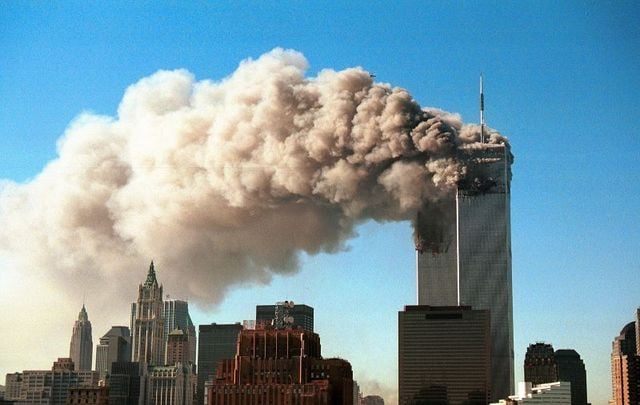
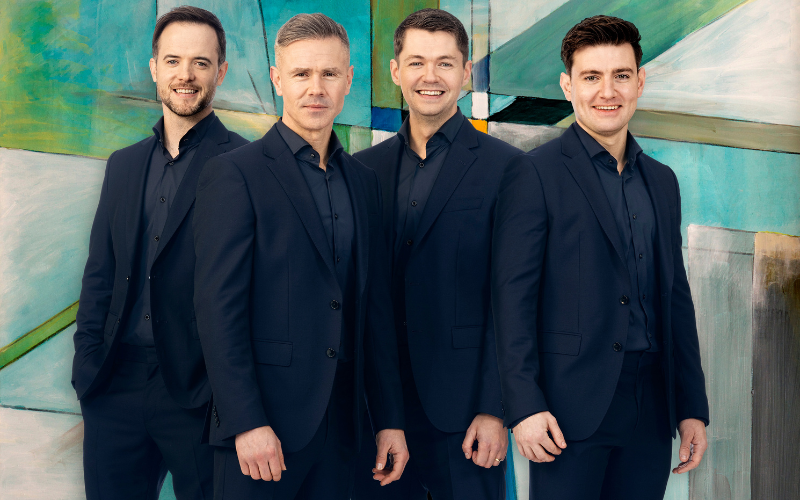
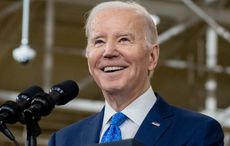
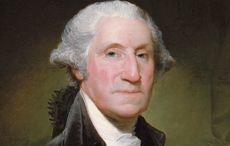
Comments